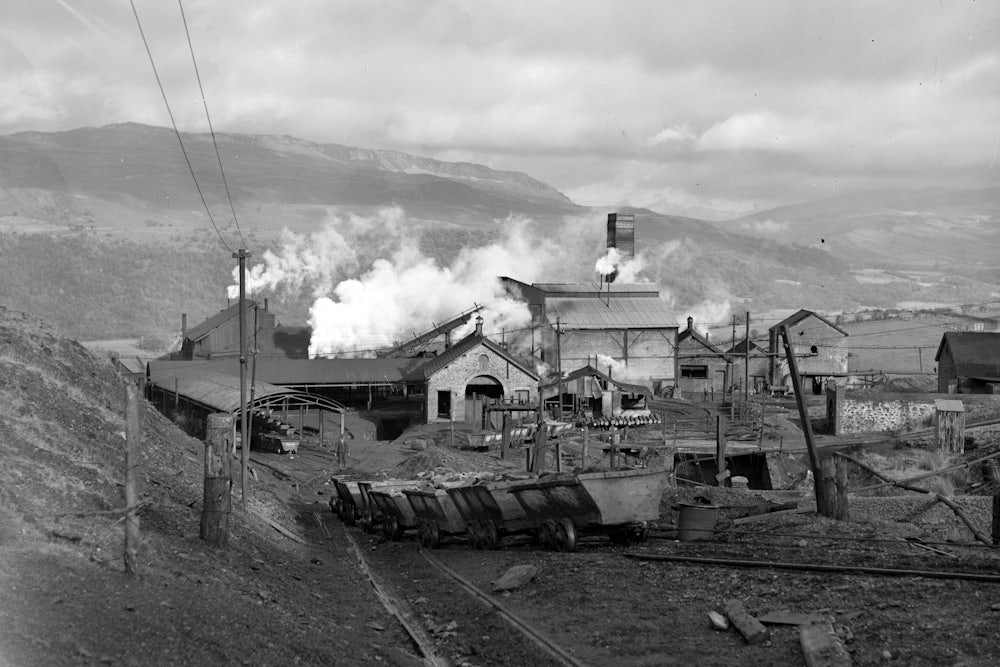Elected officials in coal country don’t square off against coal companies very often—not, at least, if they want to stay elected. But that’s just what’s happening in Routt County, Colorado. It started in June, when Peabody Energy, the world’s largest privately owned coal producer, failed to pay $1.8 million in property taxes on its Twentymile Mine, the biggest in Colorado. Peabody, the county’s largest single source of tax revenue, had filed for bankruptcy and was negotiating its debts in court. To make up for the shortfall, one local school district was forced to take out a $1 million emergency loan from the state, and a fire department in the county was shorted $60,000.
Then something strange happened. In August, when Peabody finally paid its back taxes, the county turned around and sent the money back.
Brita Horn, the county treasurer, rejected the payment because Peabody had failed to include nearly $92,000 in back interest and fees it owed. In a letter to the local Steamboat Today, Horn accused Peabody of demanding special treatment from taxpayers at the same time it was asking the bankruptcy court for permission to reward its executives with lavish bonuses. “If this office can’t offer a tax break to a single mom who worries about feeding her children,” Horn wrote, “I’m not going to offer one to a corporation that just received permission to pay executives $16 million in bonuses.”
With natural gas and renewable energy on the rise, coal is no longer the economic mainstay it once was in Routt, a rural county with a population of only 24,130. Output at the Twentymile has plunged more than 40 percent over the past decade, and employment is down from 561 miners in 2009 to only 284. Today mining provides nearly 3 percent of the county’s jobs; recreation and tourism supply 39 percent, and legalized marijuana operations are starting to take off. Peabody’s bankruptcy, and its effect on public services, represents “the issues and adjustments that coal country and the wider energy sector are having,” says Rob Godby, director of the Energy Economics and Public Policies Center at the University of Wyoming. “Old revenue models no longer work.”
Now, with the rejection of Peabody’s tax payment, the county has become a prime example of how tensions can flare when local economies begin to transition away from their dependency on coal. Tourists spent $350 million in Routt last year, attracted by Steamboat’s glitzy ski resort and the area’s natural splendor. Climate change—fueled in large part by coal consumption—has created an epidemic of pine bark beetles, which have killed off great stands of lodgepole pines in Routt, reducing them to withered brown swaths. Yet even in the left-leaning ski hub of Steamboat Springs, where snow is an increasingly precious commodity, Peabody is seen more as ally than foe. Lawns in Routt are dotted with signs that read coal keeps the lights on, and many residents feel that the county should have accepted Peabody’s tax payment.
“Treasurer Horn could have been more proactive from day one in developing a relationship with Peabody,” says County Commissioner Tim Corrigan. “She could have looked for solutions toward collecting if not all of the tax, certainly a portion.”
Horn, a 53-year-old rancher and volunteer fire chief, remains undeterred. Dressed in a green sports coat and matching eyeglasses, she has the smiling, open manner of someone who doesn’t seem to care much about what people think of her. In her view, the county cannot legally accept a delinquent payment without interest, which accrues at 1 percent per month.
“My job is to keep the county whole,” says Horn, a Republican. “We don’t do IOUs.”
For its part, Peabody said in a September statement that it had “done everything we can to pay these taxes for the benefit of the community based on the court orders governing our case.” But by October 1, the company still hadn’t paid the interest. So Horn unveiled a strategy that seemed designed to increase the pressure on Peabody: Were the company to fail to pay in full by November 17, she planned to auction its tax liens to the highest bidder. Under state law, investors could purchase Peabody’s debt, and then collect interest from the coal giant at an annual rate of 10 percent. “Where else do you get 10 percent interest?” Horn asked me, smiling.
Then, on October 31, Peabody and treasurer Horn announced that they had resolved the payment—with Peabody including more than $100,000 in interest. “No one gets special treatment in Colorado,” Horn said. She added, “I’m pleased with the outcome.”
